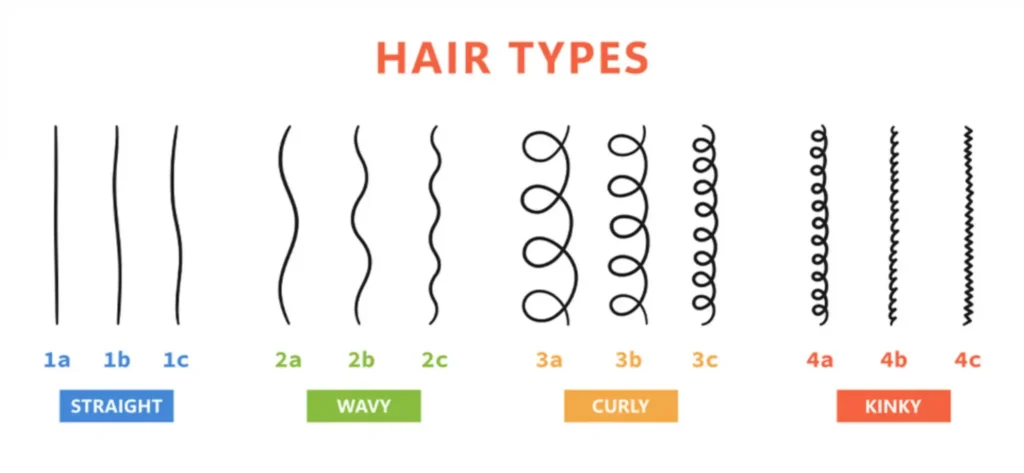We envision a world where everyone has the tools and knowledge to live a balanced, healthy, and fulfilling life. By providing reliable resources, personalized programs, and community support, we aim to be a beacon of hope for those on their health journey.
Table of Contents
Introduction to Hair Washing

how often should you wash your hair
Maintaining proper hair hygiene is an integral part of personal care that contributes significantly to overall health and appearance. Hair washing is not merely a cosmetic practice; it plays a crucial role in removing dirt, excess oil, and product buildup from the scalp and strands, which can otherwise lead to various issues such as dandruff or scalp irritation. Hair Loss Treatment at home; Understanding the importance of hair washing helps individuals make informed decisions about their hair care routines.
The frequency with which one should wash their hair often depends on various factors, including hair type, scalp condition, lifestyle, and personal preference. For instance, individuals with oily scalps may feel the need to wash their hair daily to manage excess sebum production, while those with dry or curly hair may find that washing just once a week suffices to retain moisture and prevent brittleness. Additionally, environmental elements such as humidity, pollution, and exposure to sweat can also dictate how often one must cleanse their hair.
Furthermore, the type of hair care products used can influence washing frequency as some products may require more routine cleansing to avoid residue buildup. Consequently, understanding your unique hair care needs is vital for establishing an effective routine. This consideration becomes essential when deciding on specific products, as formulations vary for different hair types and concerns.
In the following sections, we will delve deeper into these influencing factors and provide guidance on how to determine the appropriate frequency for washing your hair. By analyzing individual hair characteristics and lifestyle choices, it is possible to develop a customized hair washing regimen that supports healthy hair and scalp. This comprehensive guide aims to facilitate your understanding of hair washing, ultimately leading to better hair management practices.
Factors Influencing Hair Washing Frequency
The frequency with which individuals wash their hair can be significantly influenced by a variety of factors that encompass hair type, scalp health, lifestyle choices, and environmental conditions. Understanding these variables can provide essential insights into effective hair care routines tailored to individual needs.
First and foremost, hair type plays a crucial role in determining washing frequency. Oily hair types typically require more frequent washing, often every day or every other day, to manage excess sebum production. In contrast, individuals with dry or curly hair may benefit from washing less frequently, perhaps only once or twice a week, to retain natural oils that provide moisture and prevent frizz.
Scalp health also greatly impacts washing frequency. A healthy, balanced scalp may not require as frequent cleansing as a scalp that is oily or experiences dandruff. Individuals suffering from scalp issues, such as psoriasis or seborrheic dermatitis, may need to adjust their washing routine according to their dermatological needs and treatments. Consulting a healthcare professional is advisable for those with persistent scalp problems, as tailored care is essential.
Lifestyle choices further influence hair washing habits. For instance, individuals who engage in regular physical activities or workouts may find their hair collects more sweat and dirt, necessitating more frequent washing. Conversely, those with a relatively low activity level may find they can extend the duration between washes. Additionally, how one styles their hair—such as using hair products that may build up—can also dictate adequate washing frequency.
Lastly, environmental factors, such as humidity, pollution, and hard water, can affect hair and scalp health, which in turn impacts how often one should wash their hair. Areas with high humidity may lead to greasier hair more quickly, necessitating more frequent washes, while dry climates might encourage a less frequent routine to avoid stripping the hair of essential moisture.
Understanding Different Hair Types

Hair types can significantly influence personal hair care routines, particularly how frequently one should wash their hair. The most common classifications of hair include fine, thick, wavy, curly, and coily. Each type holds distinct characteristics that warrant tailored washing practices to maintain optimal health and appearance.
Fine hair is typically more prone to becoming oily and may appear limp or flat. Individuals with fine strands often find it beneficial to wash their hair more frequently, perhaps every day or every other day, to prevent excessive oil buildup. Using lightweight shampoos and conditioners designed for fine hair can help enhance volume without adding unnecessary weight.
On the other hand, thick hair generally tends to be drier and may require less frequent washing. Washing once or twice a week is often sufficient for those with thick hair types, as their strands usually retain moisture better. Utilizing rich, moisturizing shampoos and conditioners can help nourish and protect thick hair while avoiding the risk of stripping natural oils.
Wavy hair lies somewhere in between, often exhibiting a blend of characteristics from both fine and thick hair. Wavy hair can benefit from washing every two to three days, as this allows for a balanced approach to oil control and moisture retention. Employing sulfate-free products can help maintain the natural wave pattern and reduce frizz.
Curly hair requires specialized care due to its unique structure, which can make it susceptible to dryness. For this hair type, a wash routine of once a week is generally advised, complemented by co-washing methods that include using conditioner instead of shampoo to cleanse the hair gently. This helps preserve the curl’s moisture while limiting the potential of damage caused by conventional shampoos.
Lastly, coily hair, which is often the driest of all hair types, necessitates infrequent washing—typically once a week or less. Opting for gentle cleansing products that do not strip the natural oils is crucial for maintaining healthy coils. Additionally, integrating deep conditioning treatments into the routine can enhance hydration and elasticity.
The Role of Your Scalp Health
Maintaining a healthy scalp is crucial in determining the optimal frequency for washing your hair. The scalp serves as a foundation for hair growth, and its condition can directly influence hair texture, strength, and even growth rate. Several factors associated with scalp health, such as dandruff, psoriasis, and oiliness, can dictate how often one should wash their hair.
Dandruff, characterized by flaky skin on the scalp, can often prompt individuals to wash their hair more frequently. The common belief is that increasing the frequency of washing can assist in managing this condition by removing excess oils and skin cells. However, it is essential to select appropriate shampoos containing anti-fungal or anti-inflammatory ingredients, as harsh cleansers can exacerbate the problem. A targeted approach tailored to one’s specific scalp condition can contribute to alleviating dandruff symptoms while maintaining sufficient hair cleanliness.
Similarly, individuals suffering from psoriasis, a chronic condition that results in red, scaly patches, may also need to rethink their hair washing routines. Regular washing can help in managing the buildup of scales, but it is vital to use gentle, soothing shampoos that promote healing without irritating the skin further. A qualified dermatologist can provide guidance on suitable products and a washing frequency that best supports scalp health in such cases.
On the other end of the spectrum, those with an excessively oily scalp may find that they require more frequent washing to control sebum production effectively. Oils can trap dirt and pollutants, leading to potential scalp issues if left unaddressed. In this context, using a clarifying shampoo on occasion can help maintain a balanced scalp environment.
Understanding these conditions is fundamental to developing a personalized hair care routine that considers both scalp health and washing frequency. This tailored approach ensures not only clean hair but also fosters an environment conducive to healthy hair growth.
Lifestyle Considerations

Hair washing frequency is not merely a personal choice but is significantly influenced by various lifestyle factors. Individuals who engage in high levels of physical activity, such as athletes or fitness enthusiasts, often find themselves needing to wash their hair more frequently. The reason for this is simple: perspiration can lead to an accumulation of sweat, dirt, and oils on the scalp, which may necessitate a more regular cleansing routine to maintain scalp health and overall cleanliness.
Moreover, the nature of one’s occupation can also play a critical role in determining how often one should wash their hair. For example, individuals working in environments laden with dust, pollutants, or strong chemicals, such as construction workers or factory employees, may be subject to hair and scalp irritation caused by external contaminants. In such cases, frequent washing may be essential to eliminate these substances and reduce the risk of potential damage to the hair and scalp.
Additionally, lifestyle habits such as smoking or spending extended periods in polluted urban areas can necessitate a higher frequency of hair washing. The pollutants found in the air can settle on the hair, requiring individuals to wash their hair more often to prevent buildup and maintain its quality. Similarly, exposure to chlorine and other chemicals from swimming pools may further influence washing frequency, particularly for frequent swimmers.
In light of these considerations, it becomes clear that individuals must assess their lifestyle needs to determine the most suitable hair washing routine. By taking into account factors such as physical activity, job environment, and exposure to pollutants, one can tailor hair care practices to promote optimal hair and scalp health while aligning with their daily routines.
Common Myths About Hair Washing
Hair washing is a routine that many individuals incorporate into their personal care regimen, yet there are numerous myths surrounding the frequency and technique of this practice. One prevalent misconception is that washing hair too frequently leads to damage or that it strips the hair of its natural oils. While it’s true that overwashing can potentially dry out the hair and scalp, the definition of “too frequent” varies significantly among individuals. Factors such as hair type, scalp condition, and lifestyle play critical roles in determining how often one should wash their hair. Oily hair may require more frequent cleansing, while dry or curly hair might benefit from less frequent washes.
Another common myth is that skipping washes will lead to healthier hair. This belief is rooted in the idea that natural oils can nourish the hair. Although sebum is beneficial, it does not negate the need for cleanliness. Accumulated dirt, product residues, and dead skin cells can clog hair follicles, potentially leading to scalp issues such as dandruff or irritation. Thus, a healthy balance between washing and maintaining natural oils is imperative.
Furthermore, many people believe that certain products can replace the need for regular washing, such as dry shampoos. While these can be useful in extending the time between washes, they should not entirely substitute the act of cleansing the hair. Over-reliance on such products may lead to buildup and an unhealthy scalp environment.
In light of these myths, it is essential to recognize that the approach to hair washing should be individualized. Understanding the specific needs of one’s hair type, along with maintaining good hygiene practices, is key to achieving optimal hair health. By addressing these misconceptions, individuals can make more informed decisions about their hair care routines.
Recommendations for Hair Washing Frequency

Determining how often to wash your hair is not a one-size-fits-all approach; rather, it depends significantly on various factors including hair type, scalp condition, and personal lifestyle. Understanding these aspects can help establish a suitable hair washing routine, ensuring healthy hair and scalp.
For oily hair types, it is generally recommended to wash your hair every 1 to 2 days. Oily scalps produce excess sebum, which can lead to greasiness and a lackluster appearance. Using a gentle clarifying shampoo can help to remove the excess oil effectively while maintaining scalp health. Conversely, individuals with dry or damaged hair should aim to wash their hair less frequently, ideally every 3 to 7 days. This allows natural oils to nourish the hair and minimize further damage.
For those with curly or textured hair, washing every 5 to 7 days is often advisable. hair types; This hair type tends to be drier, as the natural oils struggle to travel down the hair shaft. hair types; Incorporating co-washing or the use of moisturizing shampoos can enhance hydration and definition.
Individuals engaged in regular physical activities or who sweat profusely may need to adjust their washing frequency, opting for washing more frequently, potentially 2 to 3 times a week, to keep the scalp clean and fresh. hair types; Additionally, hair treatments and environmental factors, such as pollution, can necessitate adjustments to an existing washing routine.
Ultimately, assessing factors such as your hair type, activities, and scalp condition will guide you in establishing an appropriate washing frequency. hair types; Experimentation may be required to identify what best suits your individual needs, promoting both hair and scalp health over time.
Tips for Healthy Hair Washing
Maintaining healthy hair entails not just choosing the right products but also employing effective washing methods. hair types; One of the fundamental aspects is selecting a suitable shampoo that aligns with your hair type. hair types; For instance, if you have oily hair, look for a clarifying shampoo that removes excess sebum, while those with dry or damaged hair should opt for hydrating formulas rich in moisturizing ingredients. hair types; Additionally, avoid shampoos containing sulfates and parabens as they may strip away natural oils and lead to dryness.
When it comes to the temperature of the water used during washing, lukewarm water is ideal. hair types; Hot water can dehydrate the hair and scalp, leading to brittleness and breakage, while cold water may not effectively cleanse the hair. hair types; Rinsing with cold water at the end of the wash can help seal the cuticle, giving your hair a shiny appearance. hair types; Furthermore, be mindful of the washing frequency; overly frequent washing can lead to dryness, while insufficient washing can promote scalp buildup and irritation. hair types; Generally, washing every two to three days is optimal for most hair types, but this can vary based on individual scalp health and lifestyle factors.
Proper technique also plays a vital role in hair washing. hair types; Begin by gently massaging the scalp with your fingertips rather than nails, as this stimulates blood circulation while minimizing damage. hair types; Focus on the scalp initially, and allow the suds to cleanse the lengths of your hair in the rinse-off. hair types; When conditioning, apply the product primarily to the mid-lengths and ends of the hair to prevent the roots from becoming greasy. hair types; Leave the conditioner in for a few minutes before rinsing thoroughly, ensuring all products are washed out. hair types; These practical tips can enhance your hair washing routine, promoting healthier, more vibrant hair over time.
Conclusion and Final Thoughts
Determining the frequency of hair washing is a highly individualized process influenced by various factors such as hair type, scalp condition, lifestyle, and personal preferences. hair types; Throughout this comprehensive guide, we have explored the intricacies of hair washing frequency and the reasons behind the differing recommendations for various hair types. hair types; For instance, people with oily hair may find that daily washing helps maintain a fresh appearance, while those with dry or curly hair may benefit from less frequent washes to retain natural oils and moisture.
Moreover, external factors such as pollution, humidity, exercise, and the use of hair products can also play a significant role in how often one should cleanse their hair. hair types; It is essential to recognize that there is no one-size-fits-all answer; rather, finding the right balance is crucial. hair types; Emphasizing the importance of listening to your hair and scalp’s unique needs will aid in developing an effective washing routine. hair types; Adjustments can be made based on seasonal changes or shifts in lifestyle, ensuring that hair health remains a priority.
Furthermore, the choice of hair care products is equally important, as selecting the right shampoo and conditioner can significantly impact hair health and appearance. hair types; Identifying formulas that cater to specific hair concerns allows individuals to achieve optimal results while maintaining a suitable washing schedule. hair types; In summary, personalizing your hair washing routine by taking into account various factors can lead to healthier hair and a more satisfying grooming experience. hair types; By paying attention to your individual needs, you can establish a hair washing routine that enhances your hair’s vitality and overall look.
Did You Try this tips ?
There are no reviews yet. Be the first one to write one.
blood work brain health cancer treatment climate health diabetes treatments digestive health disease management disease mapping exercise plan fitness tips hair care hair growth hair treatment health apps health foods health insurance health tips healthy habits healthy recipes heart disease home workouts immune boost immune foods keto plan keto recipes kidney disease lifestyle diseases meal delivery medicine innovation melanoma treatment mental health morning exercise natural remedies non melanoma nutritional advice nutrition assistance raw nutrition skin cancer skin care skin health sleep exercise sleep technology telemedicine services viral threats weight loss
how often should you wash your hair1 Happily Now
Maintaining proper hair hygiene is an integral part of personal care that contributes significantly to overall health and appearance. Hair washing is not merely a cosmetic practice; it plays a crucial role in removing dirt, excess oil, and product buildup from the scalp and strands, which can otherwise lead to various issues such as dandruff or scalp irritation. Hair Loss Treatment at home; Understanding the importance of hair washing helps individuals make informed decisions about their hair care routines.








